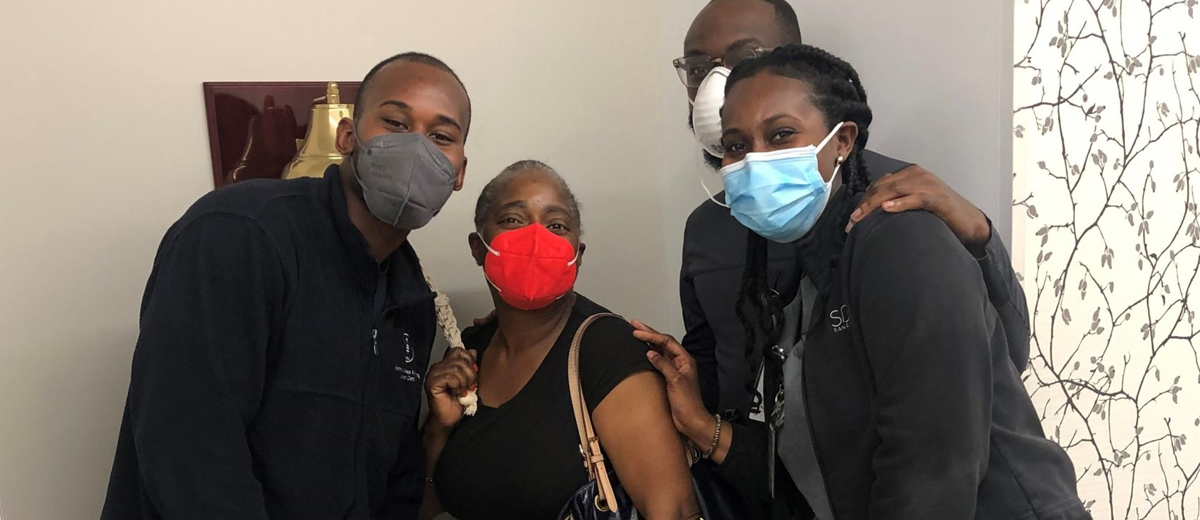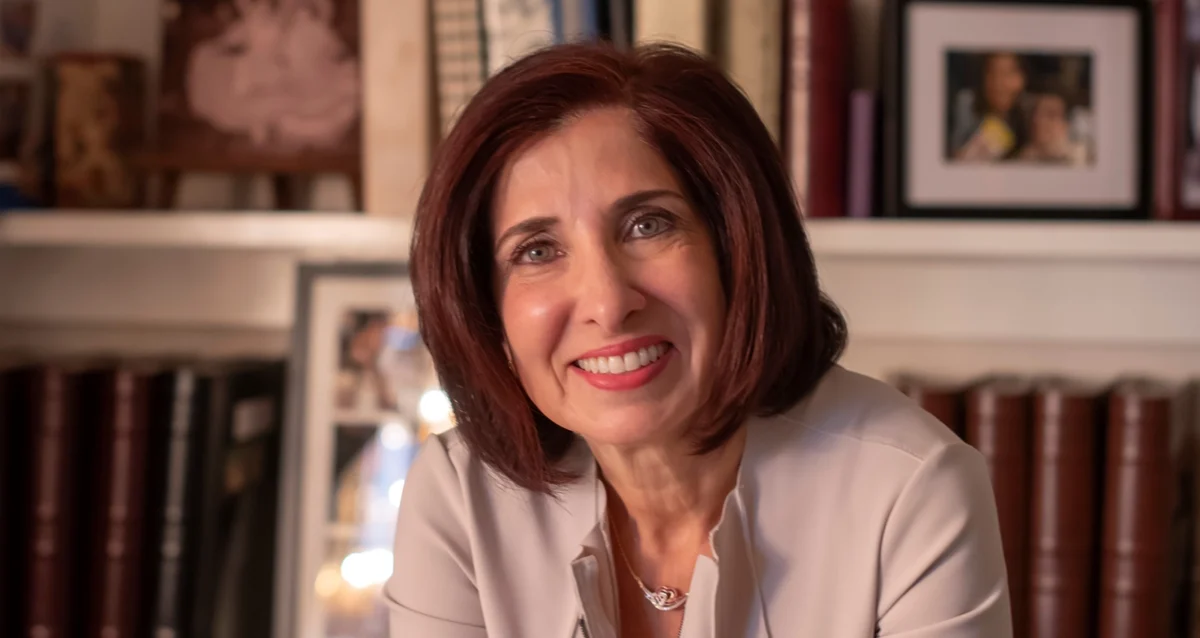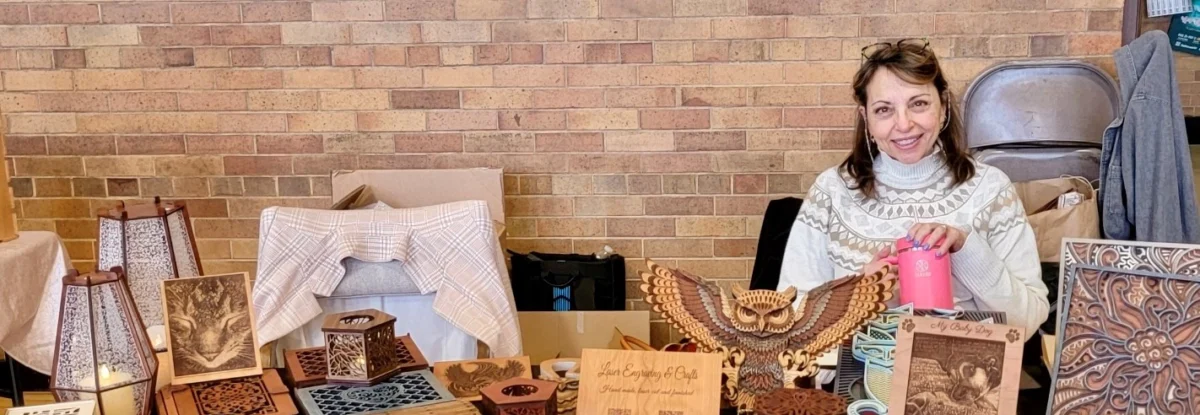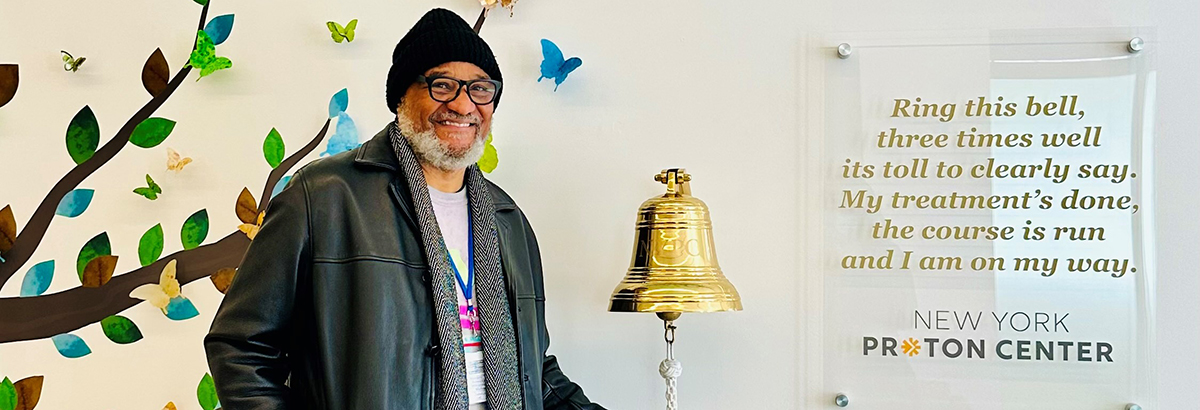Anal Cancer: Meet Tracy
Shock and Surprise, Then Optimism and Strength
Following a routine colonoscopy in March 2021, Tracy Hill-Ogletree—a mother of two living in New York City—received an unexpected diagnosis of anal cancer.
“I was already coping with some mental health issues when I got the news,” said Tracy. “It was mostly surprise and shock. Suddenly, I had to take care of not just my brain but also my body.”
Facing the prospect of combination chemotherapy and conventional radiation treatment, Tracy decided to research other options. It was the beginning of a journey that led her to the New York Proton Center—largely due to a phone call with the New York Proton Center’s Clinical Director, Dr. J. Isabelle Choi, during which any lingering misgivings were put to rest.
“We had an extensive conversation where she really reassured me,” said Tracy. “Dealing with her personally, it all just seemed right.”
“I reassure all of my patients, Ms. Hill-Ogletree included, that I am here for them every step of the way and that we are on this journey together,” said Dr. Choi. “That is the most important part of my job—letting patients know that the staff and I are their partners in this, and that the quality of the technology in every respect is matched by the quality of our team and their experience.”
“Making Friends With the Machine”
What most persuaded Tracy to receive treatment at the New York Proton Center was the superior technology of proton therapy, particularly the remarkable precision with which proton beams are able to target a tumor without exposing healthy organs and tissues to excess radiation.
“That was definitely a big deal,” she explained. “Since I already had lung issues, I was very skeptical about conventional therapy. I just wanted the radiation to hit the tumor and nothing else. I felt much more secure with protons.”
Over time, Tracy found herself increasingly comfortable with and optimistic about her treatment—what she refers to as “gradually making friends with the machine,” a suggestion she received from a fellow survivor she met in the waiting room. In hindsight, she also recalls with deep gratitude the compassion and generosity shown to her by the center’s staff.
“Overall, I can say that I really felt cared for. Everyone was so genuine—which was just a great experience, considering what I was going through on the inside.” One employee she recalls—or in her words, “brags about”—with particular fondness is Chrissy Rubin, a social worker she met with regularly.
“It was an incredibly difficult time. I had already been struggling with my mental health, and honestly, getting treatment just added to the stress. But every time I talked to Chrissy, it was great. I just felt so supported.”
And when Tracy’s insurance company initially denied coverage for her treatment—a predicament she describes as “scary”—the center’s financial counselors went to bat for her, mounting an appeal that proved successful.
“Basically, they said, ‘Don’t worry, we’ll take care of everything’—which they did,” Tracy said.
A Joyous, Final Treatment
When asked about other factors that helped ease the stress of her cancer treatment, Tracy’s first response—somewhat surprisingly—was “music.”
“I love R&B, jazz, soft rock. The radiation therapists would ask me what kind of music I was in the mood for during my treatment sessions, and I’d say ‘Frank Sinatra’ or ‘Anita Baker,’ and they’d make a playlist for me. It was so comforting.”
“Plus, there was prayer. You just have to pray and have strength. That’s what got me through.”
While Tracy acknowledges the physical and emotional effects she experienced during her treatment course, it was more than offset by the unwavering support shown by the NYPC staff—so much so that when she showed up for her final day of treatment, smartly dressed in black and red, everyone noticed in her an unmistakable transformation.
“I remember how anxious she was at the beginning,” said Chrissy. “Even with the mask on, I could see the angst in her eyes.
“But then on that last day, without her mask, there was that beautiful smile when she rang the bell. And we just smiled together. So much joy.”
Although Tracy’s journey through cancer treatment was in many ways extremely challenging, she looks back on the experience with gratitude, relief and an abundant sense of optimism. Now back at home and grateful to be healthy, Tracy is most eager for a return to simple pleasures—listening to her favorite music, playing with her pets, and roughhousing with her grandkids.
“I’m sort of a tomboy, so I love to run and jump and have fun. I just like to get dirty with them.”




